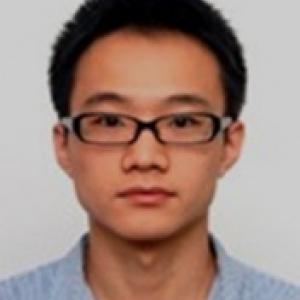Huang Lab
Education
Ph.D., Brandeis University, 1994
We study the development and function of cortical circuits underlying motor control and cognitive processing. Our research program integrates multi-faceted approaches from genetic engineering to single-cell genomics, developmental neurobiology, imaging, electrophysiology, and behavioral analyses, and aims to link fundamental neuroscience to the understanding and treatment of neuropsychiatric disorders.
Welcome to the Huang Lab!
 The overarching goal of the Huang Lab is to apply innovative and multi-disciplinary approaches to study the development and function of neural circuits of the cerebral cortex that enable motor control and cognitive processing. Our starting point is the development of molecular genetic tools to systematically identify and manipulate a diverse array of specific neuronal cell types (i.e. basic circuit elements) in the mouse brain; our recent invention of a RNA-programmable cell targeting and editing method pioneers a new generation of facile and scalable cell type technology, generalizable across animal species, including humans.
The overarching goal of the Huang Lab is to apply innovative and multi-disciplinary approaches to study the development and function of neural circuits of the cerebral cortex that enable motor control and cognitive processing. Our starting point is the development of molecular genetic tools to systematically identify and manipulate a diverse array of specific neuronal cell types (i.e. basic circuit elements) in the mouse brain; our recent invention of a RNA-programmable cell targeting and editing method pioneers a new generation of facile and scalable cell type technology, generalizable across animal species, including humans.
To discover the developmental and molecular genetic basis of cortical cell types, we carry out state-of-the-art genetic fate mapping to track their developmental trajectories, from progenitor origin and lineage progression to input-output connectivity in cortical circuits. We then apply cell type targeted single cell transcriptomics and epigenomics to reveal gene expression profiles and genetic programs underlying neuron type identities.
To explore the cell type basis of neural circuit function, we start by designing a variety of [head-constrained as well as free-moving naturalistic] behavioral paradigms to probe the mouse’s motor and cognitive capacities that engage cortical circuits. Guided by insights from behavioral analysis, we apply cell type genetic tools that integrate in vivo imaging, electrophysiology, optogenetic, and anatomic circuit tracing to discover the specific roles of distinct neuron types in cortical circuit operation. By leveraging experimentally accessible neuron types as a solid “middle ground” to navigate across levels and scales of brain organization, our research paradigm coherently integrates multi-disciplinary approaches toward discovering the general principles of cerebral cortex architecture and function, with major implications in understanding and treatment of a variety of neuropsychiatric disorders.
Selected Recent Publications:
- Raudales, Ricardo, Gukhan Kim, Sean M. Kelly, Joshua Hatfield, Wuqiang Guan, Shengli Zhao, Anirban Paul, Yongjun Qian, Bo Li, and Z Josh Huang. “Specific and comprehensive genetic targeting reveals brain-wide distribution and synaptic input patterns of GABAergic axo-axonic interneurons.” ELife Sciences Publications, Ltd, May 21, 2024. https://doi.org/10.7554/elife.93481.
- Huilgol, Dhananjay, Jesse M. Levine, William Galbavy, Bor-Shuen Wang, and Z. Josh Huang. “Orderly specification and precise laminar deployment of cortical glutamatergic projection neuron types through intermediate progenitors.,” March 2, 2024. https://doi.org/10.1101/2024.03.01.582863.
- Li, Yi, Xu An, Yongjun Qian, X Hermione Xu, Shengli Zhao, Hemanth Mohan, Ludovica Bachschmid-Romano, Nicolas Brunel, Ian Q. Whishaw, and Z Josh Huang. “Cortical network and projection neuron types that articulate serial order in a skilled motor behavior.,” October 26, 2023. https://doi.org/10.1101/2023.10.25.563871.
- Huilgol, Dhananjay, Jesse M. Levine, William Galbavy, Bor-Shuen Wang, Miao He, Shreyas M. Suryanarayana, and Z Josh Huang. “Direct and indirect neurogenesis generate a mosaic of distinct glutamatergic projection neuron types in cerebral cortex.” Neuron 111, no. 16 (August 16, 2023): 2557-2569.e4. https://doi.org/10.1016/j.neuron.2023.05.021.
- Mohan, Hemanth, Xu An, X Hermione Xu, Hideki Kondo, Shengli Zhao, Katherine S. Matho, Bor-Shuen Wang, Simon Musall, Partha Mitra, and Z Josh Huang. “Cortical glutamatergic projection neuron types contribute to distinct functional subnetworks.” Nat Neurosci 26, no. 3 (March 2023): 481–94. https://doi.org/10.1038/s41593-022-01244-w.
- An, Xu, Katherine Matho, Yi Li, Hemanth Mohan, Hermione Xu, Ian Whishaw, Adam Kepecs, and Josh Huang. “A cortical circuit for orchestrating oromanual food manipulation.” BioRxiv, 2022. https://doi.org/10.1101/2022.12.03.518964.
Huang Lab Research
Brain circuits represent some of the most sophisticated and powerful computation networks, yet they self-assemble from a genetically programmed developmental process shaped by evolution. Across biological processes, from genomic encoding to developmental assembly to the brain functions that underlie behavior, the generation of diverse neuronal cell types is an essential step, as neuron types are the units of gene expression, building blocks of circuit assembly, and basic elements of circuit organization and operation. The overarching theme of our research program is to elucidate the genetic and cell type basis of cortical circuit assembly and function. Our research includes three broad and highly synergistic areas:
1) cell type genetic tools and technologies
2) molecular genetic programs of cell type specification and developmental trajectory
3) cell type and neural circuit basis of motor control and cognitive function
Our team consists of researchers and trainees with diverse background and technical expertise in molecular genetics, developmental biology, systems neuroscience, and engineering. We employ a wide range of approaches and technologies including: molecular and synthetic biology, mouse genetic engineering, single cell transcriptomics and epigenomics, viral vectors, mesoscopic and cellular imaging, electrophysiology, optogenetics, behavioral and computational analysis. To achieve our goals, we collaborate with other scientists, engineers, and physicians across disciplines from neuroscience to RNA biology, computational genomics, biomedical engineering, and neurology and neurosurgery.
Our research is supported by National Institute of Mental Health (NIMH), the US BRAIN Initiative, and the NIH Directors Pioneer High-Risk High-Reward program. We are part of the BRAIN Initiative Cell Census Network(BICCN), where Josh Huang directs a U19 Comprehensive Center for Mouse Brain Cell Atlas.
Huang Lab Members
Alumni
Joshua Hatfield
Former Research Tech III
William Galbavy
Former Lab Affiliate
Jiayun Li
Ricardo Raudales
Former Lab Affiliate
Yongjun Qian
Former Postdoctoral Associate
Huang Lab Photos
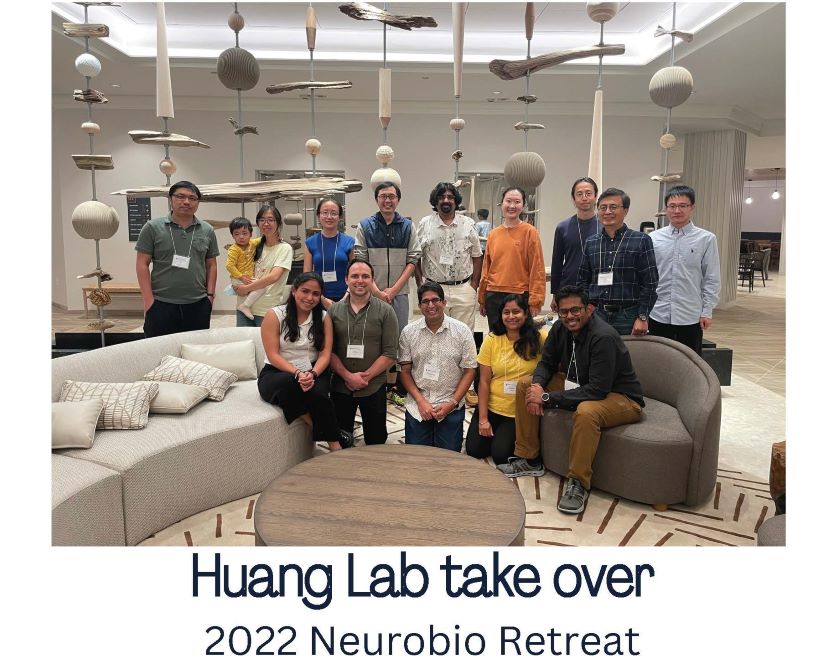
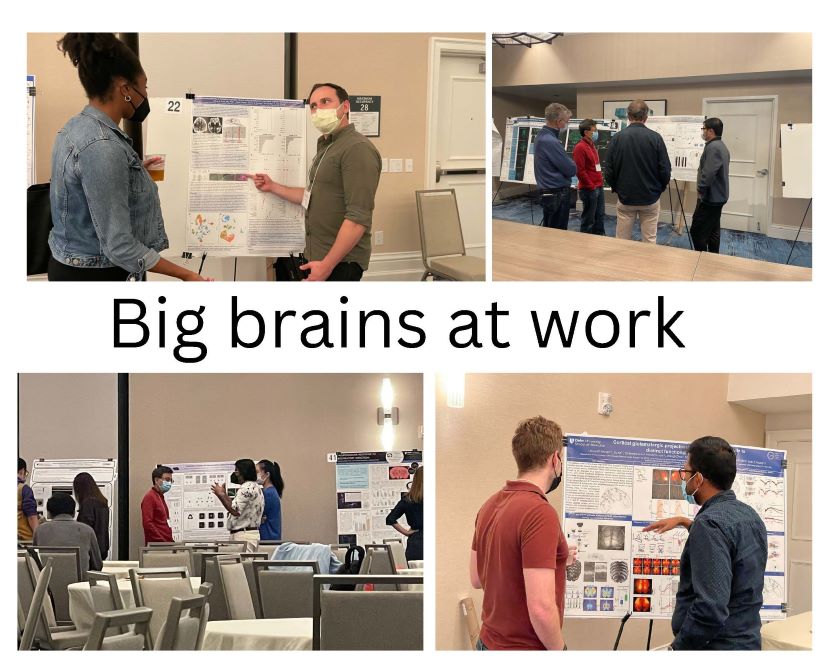
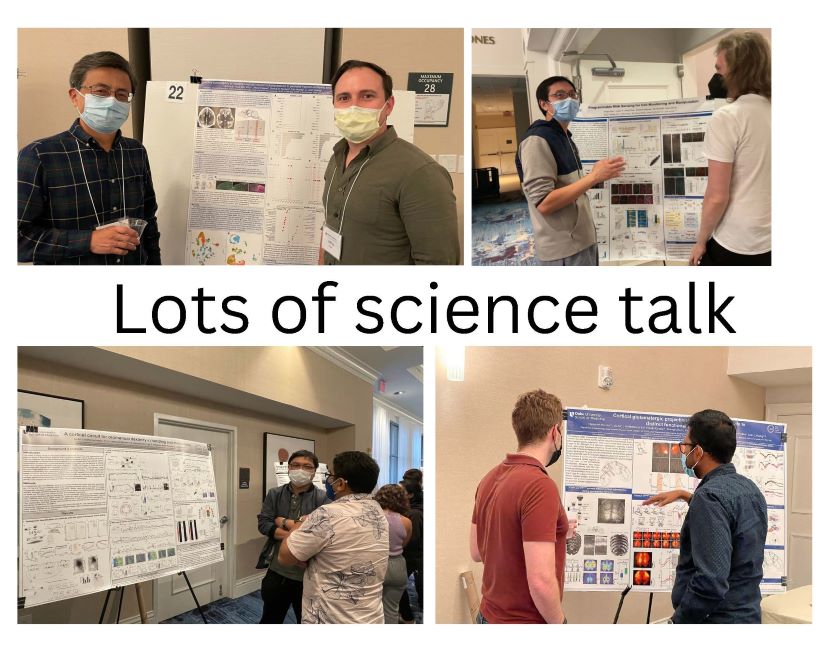
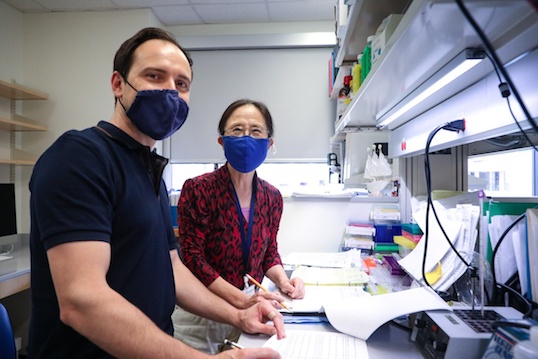
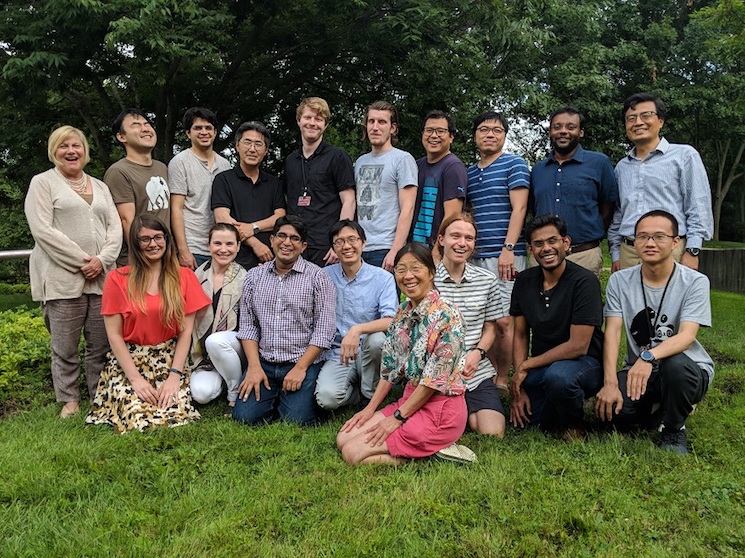
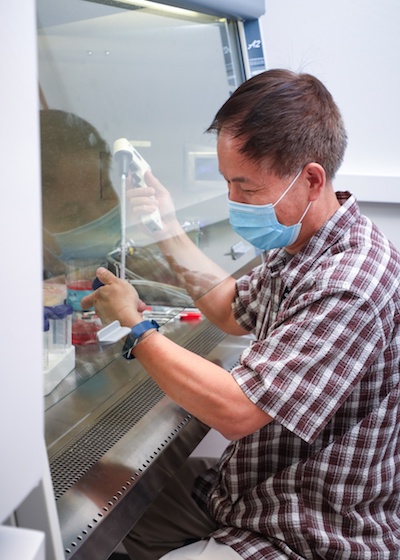
CellREADR
CellREADR stands for Cell access through RNA sensing by Endogenous ADAR (adenosine deaminase acting on RNA), and represents a new generation of RNA-based cell monitoring and manipulation technology.
Join us
We are recruiting talented and motivated Postdoctoral Fellows, Clinical/Physician Scientist Fellows, and PhD students with diverse backgrounds who are interested in any of the areas of our research program.
The Huang Lab is a recognized training lab in the following Duke PhD programs:
- Neurobiology
- Biomedical Engineering (BME)
- Cell and Molecular Biology (CMB)
- Developmental and Stem Cell Biology (DSCB)
If you are interested, please email Josh Huang.






